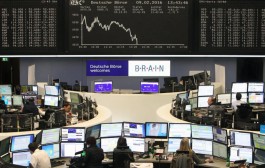Oil prices fell in early trading Tuesday amid concerns that demand for fuel will be affected by major central banks keeping interest rates high for a longer period, even as supply is expected to tighten.
In the past few days, the US and European central banks have confirmed their commitment to combating inflation, indicating that the monetary tightening policy may continue for a longer period than expected.
High interest rates slow economic growth, reducing demand for oil.
In a separate context, Moody's credit rating agency said that the US government shutdown would harm the rating of the world's largest economy, a warning that comes a month after Fitch lowered the US rating by one notch against the backdrop of the debt ceiling crisis.
While supply remains tight with Russia and Saudi Arabia extending production cuts until the end of the year, Moscow on Monday eased its temporary ban on gasoline and diesel exports, which was issued separately to stabilize the domestic market.
Price action
Brent crude futures fell 16 cents to $93.13 a barrel by 0300 GMT, and US West Texas Intermediate crude futures fell 7 cents to $89.60.
ANZ Research said in a note that shrinking oil supplies may outweigh macroeconomic challenges. We expect oil to trade above $90 per barrel during the week.
Oil prices have risen about 30 percent since mid-year, driven mostly by supply shortages, which JPMorgan said has wiped half a percentage point off global GDP growth in the second half of 2023.







































